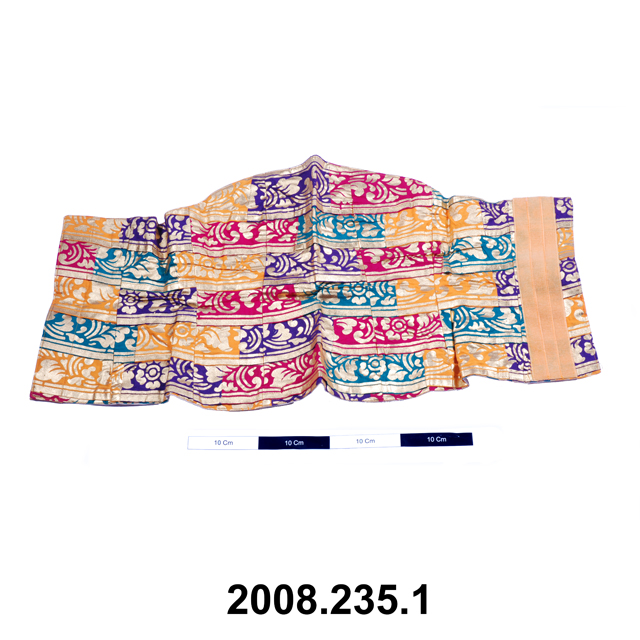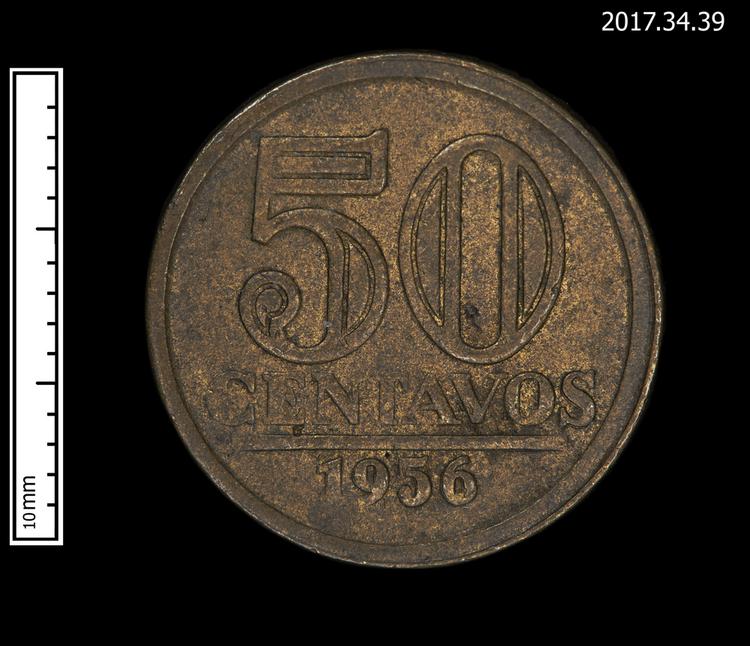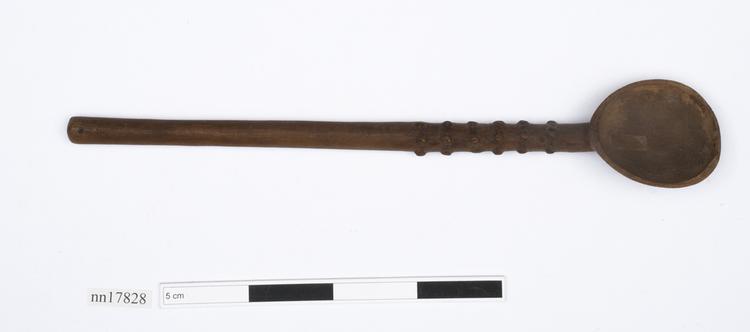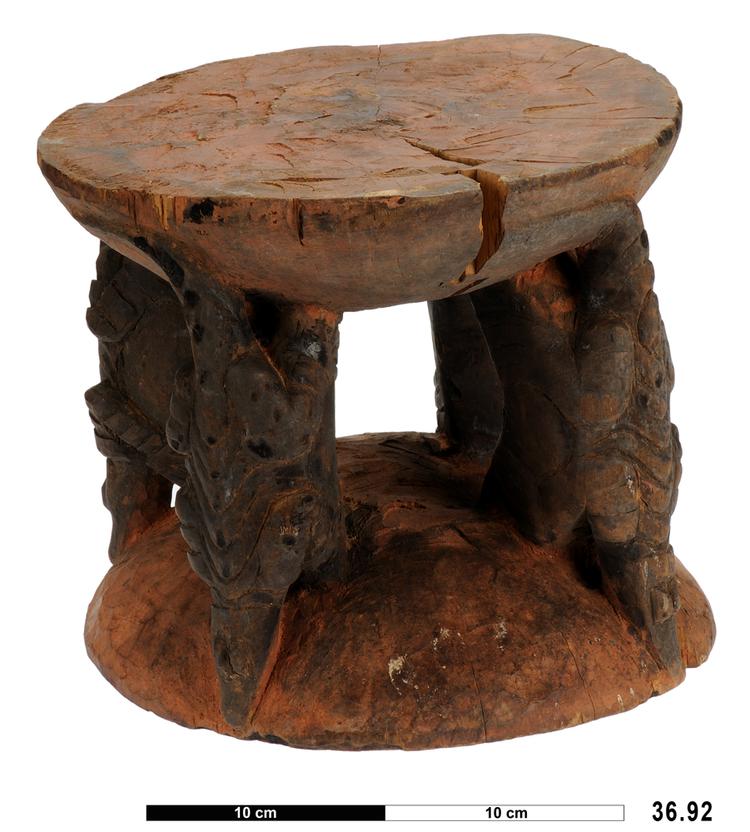
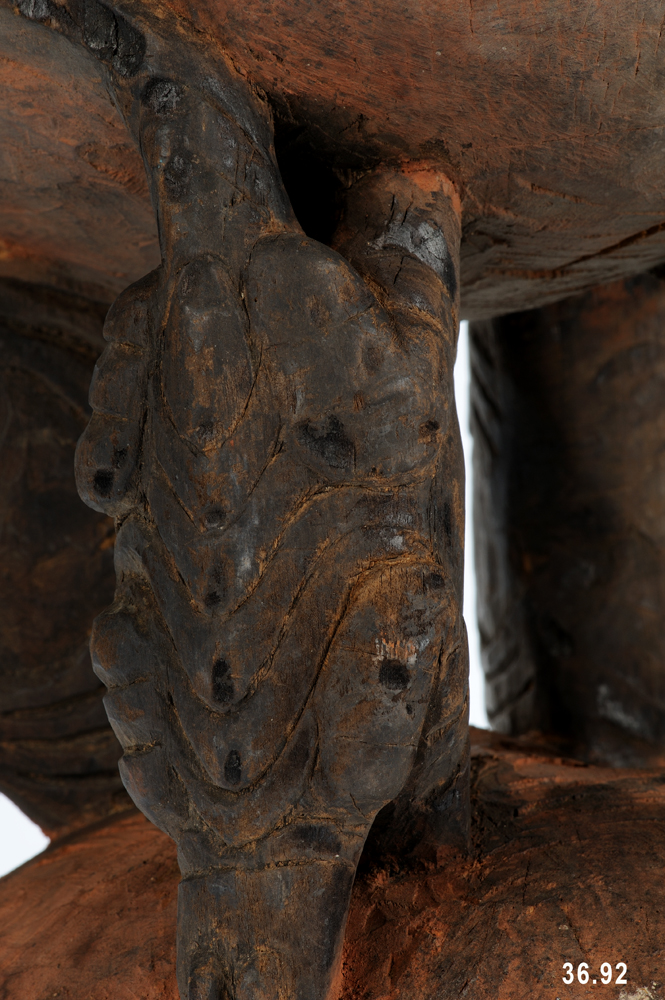
Carved wooden stool made from a single block of wood, into which a central void has been carved. The seat and foot are each formed by a flattened hemispherical dome and these are connected together by four legs each in the shape of a crocodile with its head upwards and its tail curving away to the right. Stools such as this were central elements in the interior furnishing of the men’s houses in the Middle Sepik and men would call upon the power of the totemic animals depicted by touching the stool during their oratory in political debates.
Ceremonial Stool, Tugiit, Iatmul People, Middle Sepik River, Northern Papua New Guinea For the Iatmul, ceremonial stools (tugiit) are an important feature of the cult house, and powerful symbols. The senior man (nyait) of the local Iatmul clan is sometimes referred to as its stool. As in several other Melanesian societies, the Iatmul cult house is an exclusively male space. Similarly, women, children and uninitiated men are forbidden from sitting on these stools, and they distinguish initiated men in a very clear way. However, all Iatmul agree that women are the ‘true stools’ (that is, the foundation and supporting structure) of Iatmul society. The Iatmul believe it is the role of men and women to complement each other in all things: for example, the father is believed to contribute bone to a baby, while the mother contributes its flesh and blood. In this way, when the male leaders of the Iatmul sit on their stools, they become like mothers to the clan, nurturing it as a child. The legs, carved as four crocodiles, symbolically reinforce these meanings of the stool. Totemic crocodile spirits (wai wainjiimot) are understood by the Iatmul as the true source of both foetuses and initiated men: the stool becomes an all-encompassing symbol of male authority for the Iatmul. There are several kinds of stool: relatively simple seats such as this one, taller stools that men use during their political debates in the cult house, striking them with a bunch of ginger leaves to emphasise their points, and yet taller stools which incorporate a statue of the warrior-spirit Tuatmeli, and were employed in this same kind of debating when matters of war were on the agenda. Wood. Early 20th Century. Collected in Kanimdimbit village in 1936 by W. G. Guinness, first Baron Moyne.



